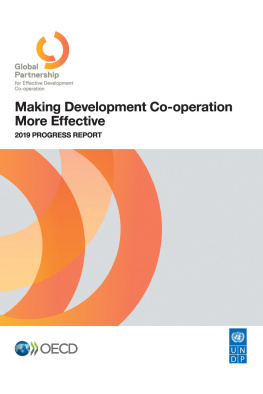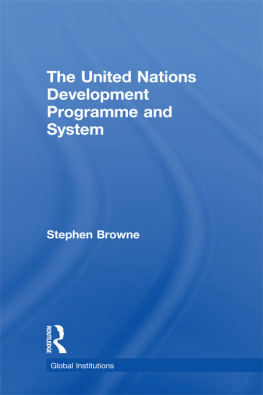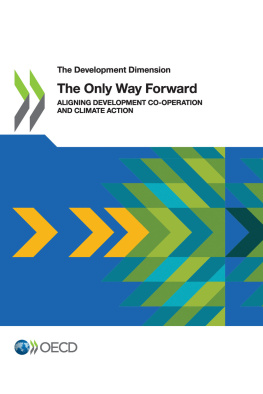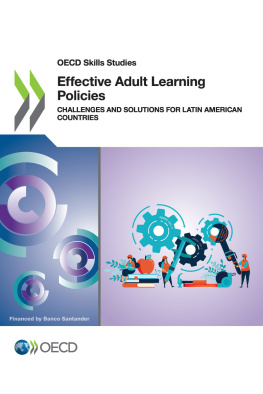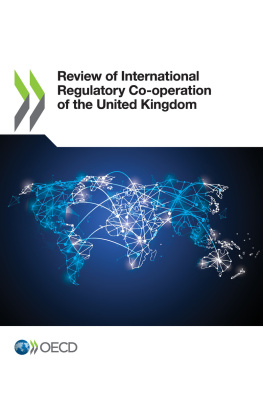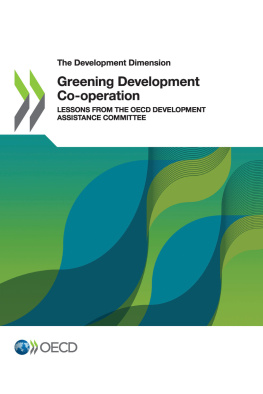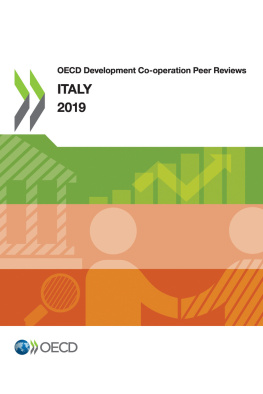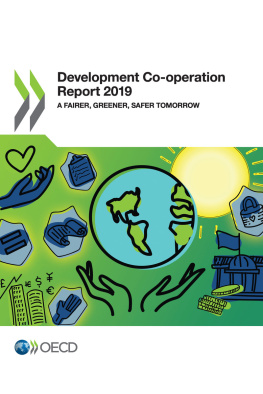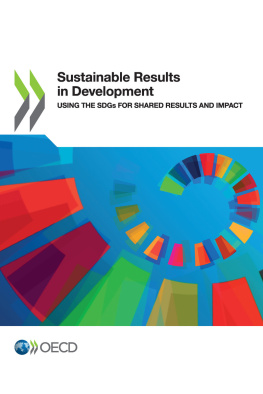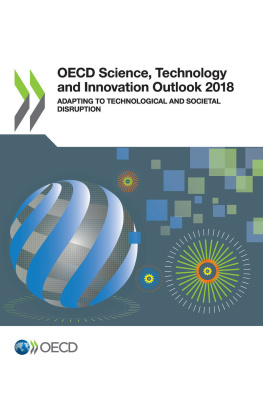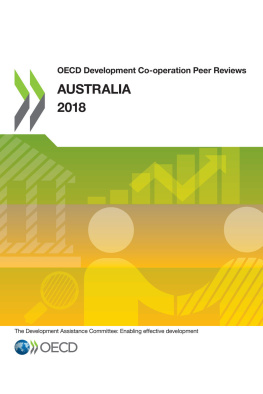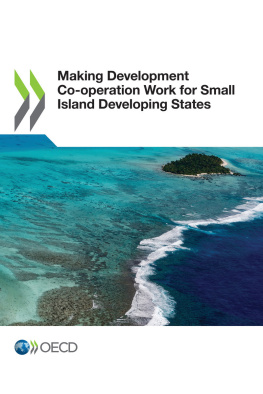OECD and UNDP - Making Development Co-operation More Effective
Here you can read online OECD and UNDP - Making Development Co-operation More Effective full text of the book (entire story) in english for free. Download pdf and epub, get meaning, cover and reviews about this ebook. year: 2019, publisher: OECD Publishing, genre: Romance novel. Description of the work, (preface) as well as reviews are available. Best literature library LitArk.com created for fans of good reading and offers a wide selection of genres:
Romance novel
Science fiction
Adventure
Detective
Science
History
Home and family
Prose
Art
Politics
Computer
Non-fiction
Religion
Business
Children
Humor
Choose a favorite category and find really read worthwhile books. Enjoy immersion in the world of imagination, feel the emotions of the characters or learn something new for yourself, make an fascinating discovery.
- Book:Making Development Co-operation More Effective
- Author:
- Publisher:OECD Publishing
- Genre:
- Year:2019
- Rating:4 / 5
- Favourites:Add to favourites
- Your mark:
- 80
- 1
- 2
- 3
- 4
- 5
Making Development Co-operation More Effective: summary, description and annotation
We offer to read an annotation, description, summary or preface (depends on what the author of the book "Making Development Co-operation More Effective" wrote himself). If you haven't found the necessary information about the book — write in the comments, we will try to find it.
Making Development Co-operation More Effective — read online for free the complete book (whole text) full work
Below is the text of the book, divided by pages. System saving the place of the last page read, allows you to conveniently read the book "Making Development Co-operation More Effective" online for free, without having to search again every time where you left off. Put a bookmark, and you can go to the page where you finished reading at any time.
Font size:
Interval:
Bookmark:
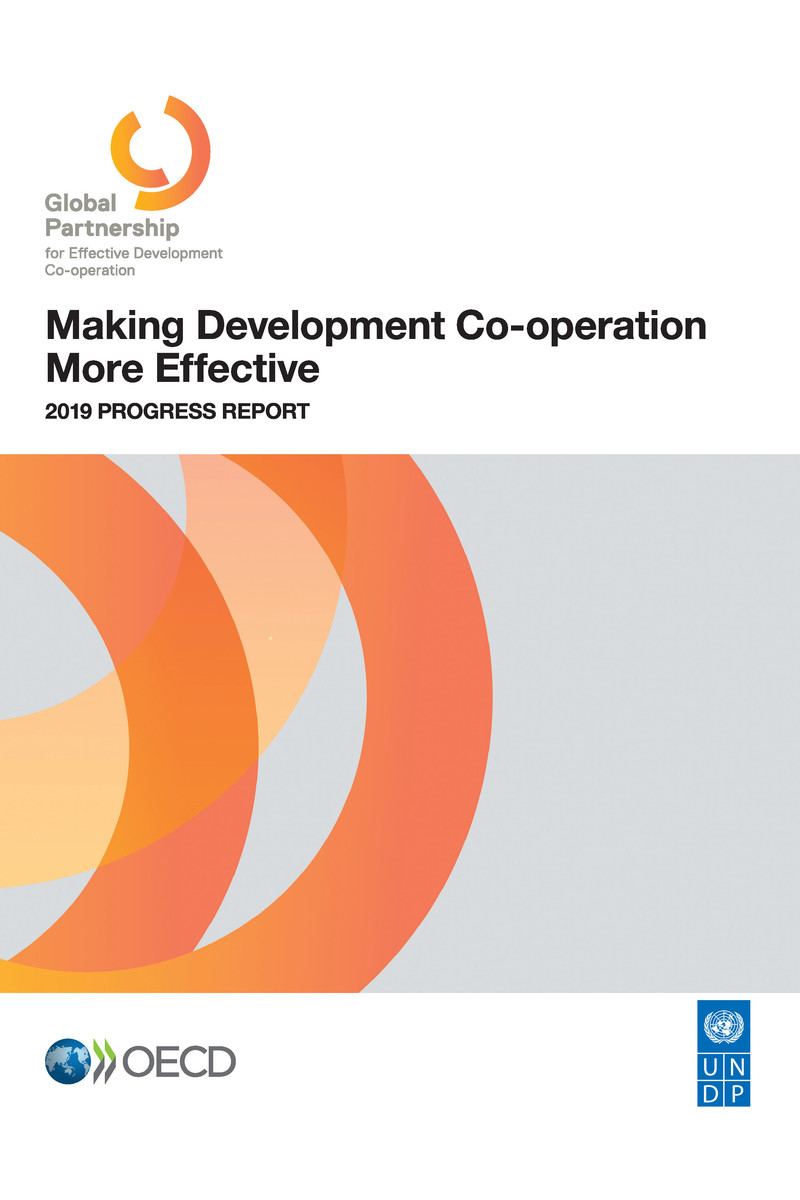
OECD/UNDP (2019), Making Development Co-operation More Effective: 2019 Progress Report , OECD Publishing, Paris, https://doi.org/10.1787/26f2638f-en .
A paradigm shift in development partnerships is critical to meeting the magnitude and complexity of development challenges. The Sustainable Development Goals (SDGs) provide a compelling vision of what is to be achieved, and the Financing for Development process an understanding of what this needs to succeed. Complementing these by addressing how we partner and work together, based on the internationally agreed upon effectiveness principles ownership by partner countries, a focus on results, inclusive partnerships, and transparency and mutual accountability will be essential to getting the 2030 Agenda back on track, and to ensuring that no one is left behind.
The Global Partnership for Effective Development Co-operation drives more effective development efforts. Its flagship instrument is its biennial monitoring exercise, which tracks progress towards the effectiveness principles, acting as a tool for mutual accountability and learning among partner country governments and their development partners. The exercise also provides important data and evidence to inform the SDG and Financing for Development follow-up and review processes.
As the Co-Chairs of the Global Partnership, we would like to express our sincere thanks to all those that contributed to a successful 2018 Monitoring Round. We would like to first recognise the 86 partner country governments that led the country-level exercise. We would also like to recognise the 100+ development partners, as well as the hundreds of representatives of civil society, businesses, trade unions, foundations, parliaments and local governments who engaged in the monitoring process. This is the clearest demonstration that effectiveness matters to all of us. We express our appreciation to the OECD-UNDP Joint Support Team for facilitating the monitoring exercise and preparing this report. Finally, we would like to give thanks to the Global Partnerships outgoing Co-Chairs, Germany and Uganda, for their commitment and support throughout the monitoring process.
Our efforts must be sustained. This report represents a starting point for dialogue and action. We must now come together to ensure the data and evidence presented here are used to strengthen the quality of co-operation, maximising the impact of joint action towards implementation of the SDGs and ensuring that every dollar reaches its full potential towards ending all forms of poverty and reducing inequality. The global partnership monitoring is a country led process. In light of the evolving co-operation landscape, we will continue to adapt the monitoring process, in order to respond to context-specific needs, improve alignment to the SDG follow-up, and review process. Through these efforts, the Global Partnership will contribute to the more inclusive multilateralism, and more effective partnering, necessary to realise the decade of delivery.

Monowar Ahmed
Permanent Secretary
Economic Relations Division, Ministry of Finance
Bangladesh

Thomas Gass
Ambassador, Assistant Director General
Head of South Cooperation Department
Federal Department of Foreign Affairs
Swiss Agency for Development and Cooperation SDC

Daniel Epembe Mosango
Secretary-General
Ministry of Planning
Democratic Republic of the Congo

Vitalice Meja
Executive Director
Reality of Aid Africa
Non-executive Co-Chair
This is the Global Partnership for Effective Development Co-operation 2019 Progress Report. Parts I and II of this report were released in advance of the Senior-Level Meeting of the Global Partnership, which took place on 13-14 July 2019, on the margins of the 2019 United Nations High-level Political Forum on Sustainable Development. Parts I and II present results that have emerged from analysis of data collated for the 2018 Global Partnership Monitoring Round. Global Partnership progress reports enable policy makers to understand trends related to mainstreaming effective development co-operation principles into development co-operation practices at country level, and gain an outlook on key issues for the effectiveness agenda that require action over the coming years.
Parts I and II provide analysis and findings with respect to delivering against internationally agreed effectiveness commitments. A concluding Part III, informed by the discussions at the Senior-Level Meeting, reflects views of Global Partnership stakeholders on the evidence presented in Parts I and II as well as key messages to further shape the future of the monitoring exercise and effectiveness efforts.
Font size:
Interval:
Bookmark:
Similar books «Making Development Co-operation More Effective»
Look at similar books to Making Development Co-operation More Effective. We have selected literature similar in name and meaning in the hope of providing readers with more options to find new, interesting, not yet read works.
Discussion, reviews of the book Making Development Co-operation More Effective and just readers' own opinions. Leave your comments, write what you think about the work, its meaning or the main characters. Specify what exactly you liked and what you didn't like, and why you think so.

